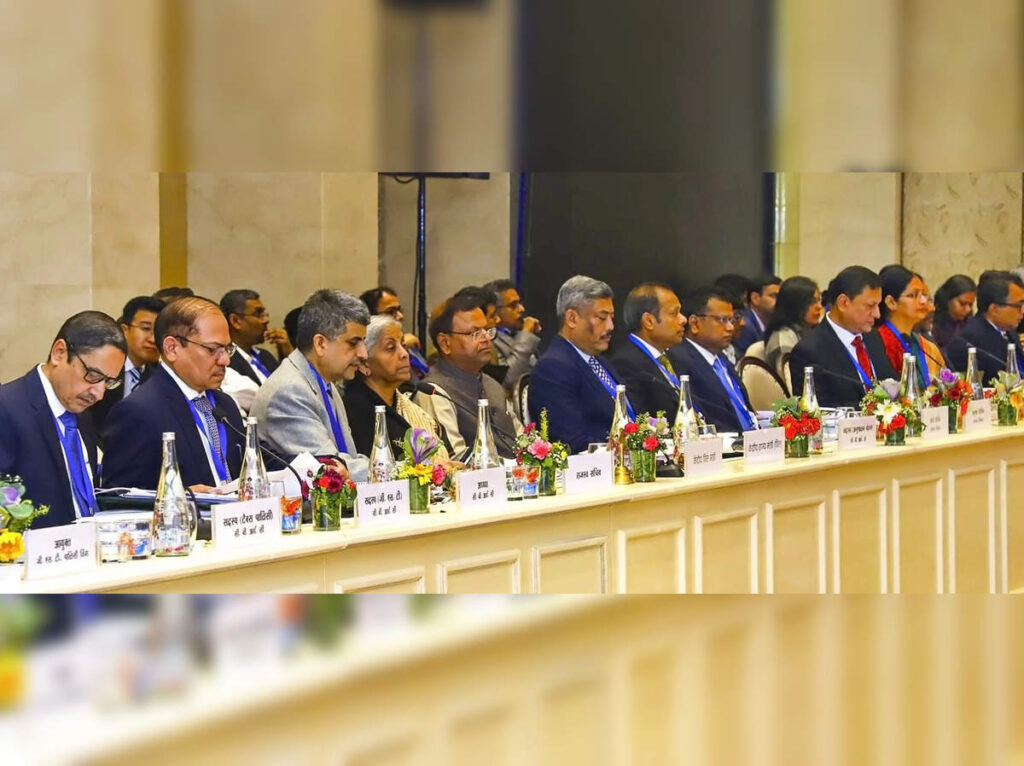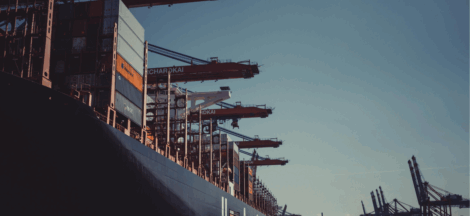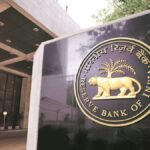JAISALMER: The Goods and Services Tax (GST) Council on Saturday deferred crucial decisions on a large-scale rate rationalisation, taxation of health and life insurance premiums, and on how to restructure the compensation cess after the March 2026 deadline.
While a decision on cutting GST on food delivery apps from 18% has also been deferred, quick commerce firms will continue to face penal charges for any non-payment of tax at 18%.
The Council, however, undertook rate revisions for a clutch of items, including fortified rice kernels and used electric vehicles, and issued clarifications on GST treatment of ready-to-eat popcorn.
A proposal to bring aviation turban fuel (ATF) under the GST was briefly discussed by the Centre-state Council but no decision was taken due to lack of consensus.
“The report (by a group of ministers) on rate rationalisation is not final. And on health and life insurance premiums, the GoM concerned is awaiting inputs from Insurance Regulatory and Development Authority of India (IRDAI). They will finalise reports and submit to the Council for discussion,” finance minister Nirmala Sitharaman said, after the 55th meeting of the Council.
The Council also decided to extend the time frame for the GoM on the restructuring of the GST compensation cess (CC) till June 30, 2025. The cess which was originally set to end in June 2022, was extended until March 2026 to help repay a Rs 2.7 lakh crore loan taken by the Centre during the pandemic to cover revenue shortfalls.
“States view ATF similar to petrol, diesel, and other petroleum products. They are not willing to bring (such products) in GST,” said the FM.
The Council decided to reduce the GST rate on fortified rice kernel to 5% from 18% currently, exempted tax on gene therapy, and extended the Integrated GST exemption to “systems, sub-systems, equipment, parts, sub-parts, tools, test equipment, software meant assembly/manufacture of LRSAM system.” It also reduced the rate of compensation cess to 0.1% on supplies to merchant exporters and extended the concessional 5% GST rate to food inputs supplied under government welfare schemes.
Moreover, a special demand by Andhra Pradesh to discuss levy of 1% additional GST over and above the topmost 28% in case of disasters, broadly on the lines of flood cess levied by Kerala in 2019, was discussed. The Council agreed to refer this discussion for a special levy for disasters to a new GoM panel.
On the taxability issues pertaining to delivery charges collected by quick commerce platforms, the Council has deferred taking any decision, as the fitment committee will examine the matter, Central Board of Indirect Taxes and Customs chairman Sanjay Kumar Agawal told reporters. “In the meantime, the notices issued for non-payment of tax on such charges will stay valid, and authorities will act as per the due process of law,” he said.
The Council also clarified that RBI regulated payment-aggregators are eligible for the exemption from GST, on payments below Rs 2,000. They, however, said this exemption does not cover payment gateway and other fintech services which do not involve settlement of funds. Additionally, the Council clarified that no GST is payable on the ‘penal charges’ levied and collected by banks and NBFCs from borrowers for non-compliance with loan terms.
Another key issue decided by the Council was on the issues pertaining to the ‘Safari Retreats’ judgment of the Supreme Court. The Council decided to retrospectively amend the Central Goods and Services Tax Act, thereby reversing the recent Supreme Court judgment in the Safari Retreats case. The Supreme Court had, in October, allowed input tax credit claims on construction costs for rental properties.
The Council, however, recommended amending the CGST Act, to replace the phrase “plant or machinery” with “plant and machinery”, retrospectively, with effect from July 1, 2017.
The GoM’s report of rate rejig of about 150 items is expected to fetch Centre and states an additional revenue of around Rs 22,000 crore per annum. The GoM is learnt to have decided to recommend slashing the GST on readymade garments priced up to Rs 1,500 to 5% from 12%; but for garments priced between Rs 1,500 and Rs 10,000, it has proposed to hike it to 18% from 12%.
The panel has also decided to suggest lowering GST rates to 5% for 20-litre packaged drinking water bottles (existing 18%), bicycles (18%) and exercise notebooks (12%); and raising the GST on wristwatches priced above Rs 25,000 and shoes above Rs 15,000 to 28% from 18% currently. Moreover, the GoM has proposed a ‘special rate’ of 35% on several sin items such as tobacco, tobacco products and aerated beverages.
MS Mani, partner, Deloitte India said: “While there is now an inevitable delay in the decision making for health and term insurance, insurance companies, brokers and consumers would expect that the final decision in the next meeting takes into account specific situations such as group policies with varying insurance coverage levels for employees , family floater health cover where some members may be senior citizens etc.”
Pratik Jain, partner, PwC India, said: “While the consensus seems to be eluding on structural aspects like inclusion of ATF within ambit of GST, it is important that Council continues its efforts to build consensus on these important issues.”
Source: The Financial Express




 Banks Urge RBI To Extend Deadline For Overlapping Lending Rules
Banks Urge RBI To Extend Deadline For Overlapping Lending Rules 